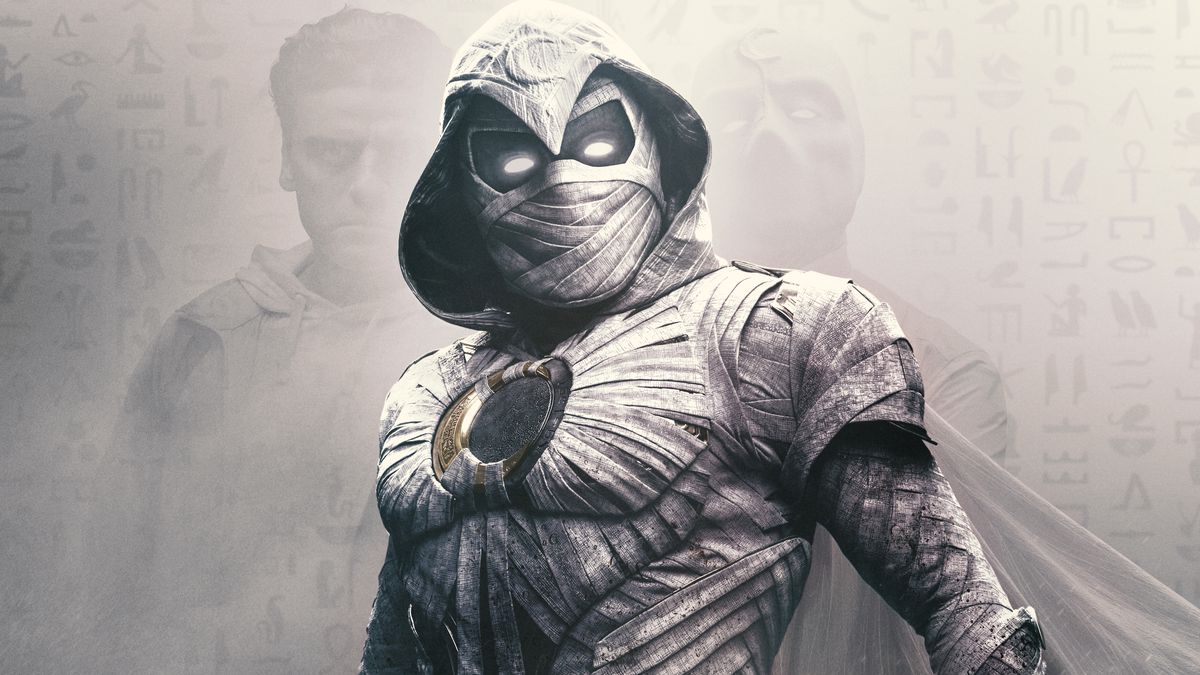
@eggrollko
When it was announced that Moon Knight would get his own series, I was curious to see how the character would be portrayed and received, given that he was initially nothing more than a Batman rip-off with multiple identities he uses to gather information. This Knight was later revised to be a man with Dissociative Identity Disorder with those other identities as his alters. This show seemed to be leaning hard into that in the marketing, which led me to question whether Marvel could pull off a gripping superhero story involving a man with a mental disorder without being disrespectful in their portrayal of said disorder. Ultimately, they mostly did so with some mixed results.
The superhero story actually took a backseat in the first couple of episodes as the story leaned hard into the struggles of Steven Grant (Oscar Isaac), a British man who works in the gift shop of a London museum. Right away he deals with the effects of what he believes is a sleepwalking disorder, only for it to become apparent early on that he’s actually dissociating and waking up in strange places and losing time. This all leads to the moment when Steven first interacts with his alter, Marc Spector (also Oscar Isaac), an American mercenary who took on the powers of the Egyptian Moon god, Khonshu. Spector becomes the superhero Moon Knight and punishes those who would do evil under the night sky.
This is where the superhero story truly begins, as a former avatar of Khonshu, Arthur Harrow (not Oscar Issac, surprisingly, but Ethan Hawke), has now become devoted to another Egyptian god, Ammit. Harrow has begun using some sort of power granted to him to kill people who commit evil at any point in their lives, regardless of whether or not they’ve actually committed the acts yet, and is now on a mission to release Ammit from captivity. Got it? Lucky you. This part of the story, while somewhat interesting, actually feels rather rushed; while the title of the show is Moon Knight, this is truly a story about Marc Spector and Steven Grant, two identities within one body, coming to terms with their existence and dealing with the trauma that brought it about and attempting to heal and move forward from there.
Most of this happens in the fifth episode, an absolutely heartbreaking showing that delves into Marc and Steven’s past and is one of the most difficult episodes of a show that I’ve ever had to watch. Episode 5 requires its own piece to thoroughly break down the layers of character development, the characterization of flawed, broken people, and the truly tragic effects that can come from not dealing with trauma. As difficult as it was to watch, the Ep. 5 was masterfully done and up there with the best episodes of all the Disney+ Marvel series. It absolutely makes the show worth watching alone.
The place where the series fail in its portrayal of the mental disorder? When showrunner Mohamed Diab and lead writer Danielle Iman sing the Hollywood stereotype of the violent alter, something that leads to a misunderstanding and fear of people with DID. Even within the confines of this superhero story, it really did seem like Marvel had managed to avoid that trap despite constantly hinting at it. All that said, the story told here was fantastic. Moon Knight even included some stunning visuals that you’d come to expect from superhero movies and not shows. The visuals of MK’s cape in a crescent shape directly in front of the moon as he flies into the night sky, the giant forms of Khonshu and Ammit fighting behind Moon Knight and Harrow, Spector’s wife, Layla, becoming an Egyptian hero with an outfit reminiscent of Sam Wilson’s, and Khonshu turning back the night sky 2000 years were all amazing to behold.
Ultimately, this series wasn’t perfect or even well-balanced, but all of its disparate parts were enjoyable in their own way, allowing this series to feel bizarre but enjoyable rather than disjointed, which is how it may have felt in the form of a movie. 4/5 Moon Shines.
-Kevin Palma

